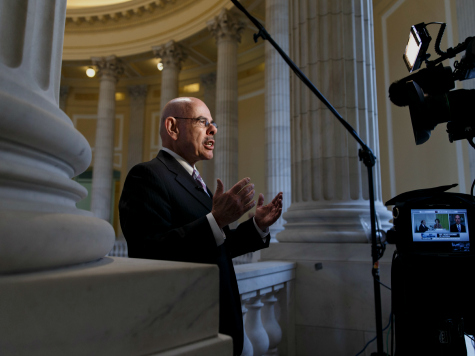Henry Waxman, who just announced his retirement after 40 years in Congress, may be the most powerful under-the-radar-screen person in Washington.
President Obama calls his fellow Democrat “one of the most accomplished legislators of his or any era.” The Washington Post‘s Harold Meyerson calls him “liberalism’s legislative genius” who “decisively consigned the Republican right’s favored ideology–libertarianism–to history’s dustbin.” He did so, Meyerson went on, by proposing “common sense” laws. “Who could be against” Waxman?
In fact, many people were against Waxman- and for good reason. For one thing, he was the acknowledged master of underhanded legislative tricks. He learned how to write amendments that not even a lawyer could understand and then slip them into unrelated bills when nobody was watching.
For example, he drafted a bill written in no known human language that was intended to restrict the sale of dietary supplements, a longtime crusade of his. He then waited until House and Senate were about to reconcile their massive Wall Street reform bills and at the last moment slipped in his supplement bill posing as an amendment to the finance bill. Fortunately the totally unrelated amendment was discovered just before one of Waxman’s famous all night conference committee meetings, and after heated discussion was rejected by the other conferees.
The odd part of this story is that Waxman’s district, which included part of Hollywood, must have teemed with health food stores selling dietary supplements. It is doubtful that many of the voters supporting him even knew about this and similar behind-the-scenes gambits.
On another occasion, Waxman stopped the progress of legislation he didn’t like by offering 600 amendments. The paperwork was wheeled into the House Energy and Commerce committee room in shopping carts.
The Congressman knew how to raise money from corporate and other special interests, who feared him, and since he was in a safe district himself, he could spread his money among colleagues, thereby garnering support for his own bills. Each bill he introduced raised more money for him, either from special interests supporting it, or interests who were afraid to cross him.
In many cases, what Waxman actually got from his many successful bills was unintended. For example, he succeeded in mandating that either an additive MBTE or ethanol be added to gasoline. It later developed that MBTE contaminated groundwater and that ethanol raised the price of corn and other grains without helping the environment.
Click here to read the rest of the article at AgainstCronyCapitalism.org
Hunter Lewis is co-founder of AgainstCronyCapitalism.org, co-founder and former CEO of Cambridge Associates, a global investment firm, and author of two recent books, Free Prices Now!, about the Fed, and Crony Capitalism in America 2008-2012.

COMMENTS
Please let us know if you're having issues with commenting.